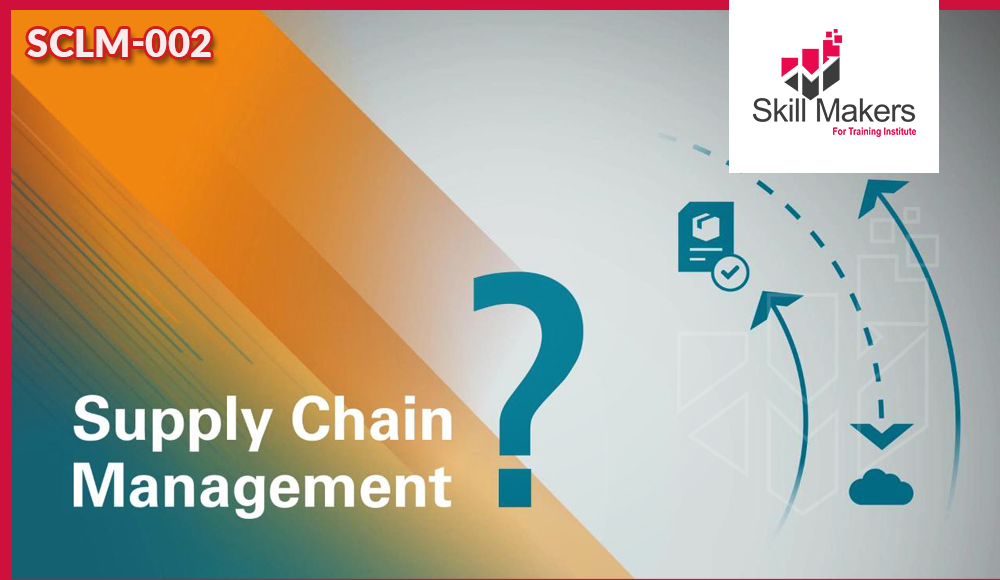-
Course Code
SCLM-002

Integrated Supply Chain Management
- Since its inception in the early 1990's, the field of supply chain management has become tremendously important to companies in an increasingly competitive global marketplace. The term supply chain refers to the entire network of companies that work together to design, produce, deliver, and service products. In the past, companies focused primarily on manufacturing and quality improvements within their four walls; now their efforts extend beyond those walls to encompass the entire supply chain. A simplified explanation of Logistics and Supply Chain sustainability revolves around an organization’s Supply Chain’s efforts in the area of environment, waste and risk assessment and improvement.
- Why do this? Most of the gains achievable from an internal focus have been realized, while the opportunities that exist through cooperation and collaboration are the new frontier! This course will take you through key elements of supply chain management and provide a background for the concepts covered in full-length modules.
Learning Outcomes
- The broad objective is to provide participants with conceptual tools and analytical frameworks to lead and deal with the challenges faced by logistics and supply chain executives
- The course focuses on strengthening the participants' understanding of the complexities and analytics of logistics and supply chains and on developing effective operational strategies
- It strives to develop the participants' ability to evaluate a firm’s strategy, to formulate managerial policies to guide operations and to expand management focus to a global perspective
Course Contents
- Definitions of Logistics and Supply Chain Management
- History and the Development
- Understanding the Supply Chain Dynamics
- International and Global Logistics
- Supply Chain Operations Reference Models (SCOR)
- The Theory of Constraints (TOC)
- The Role of Transportation in Logistics
- Management Key Decisions
- Types of Mode or Intermodal System
- International Commercial Terms in Transportation and the Liabilities
- Documentation in Transportation
- Hazardous Materials Transportation
- Key Performance Indicators (KPI)
- Warehouse Management
- Role in the Supply Chain
- Supply Chain Risks
- A practical effect on lot sizes/order quantities
- Reducing costs
- Sharing developments
- Eliminating internal and external barriers
- Interfacing versus integrating relationships
- Role of forecast in supply chain
- The Difference between Procurement and Purchasing
- What is the role of Procurement and Purchasing?
- Support Operational Requirements
- Manage the Procurement Process and the Supply Base
- Develop Strong Relationships with Other Functional Groups
- Team Roles and Responsibilities
- Statistics in Inventory Management
- Financial in Inventory Management
- Selective Inventory Control Management
- Understanding Inventory Status
- Reducing Excess and Obsolete Inventory
- Improving the Organization’s Logistics and Supply Chain
Understanding Logistics and the Supply Chain:
Transportation Economics:
Performance, Risk and Warehouse Management:
Impacts to the Supplier/Customer relationships:
Procurement in Supply Chain:
Inventory Management:
Our Methodology
- Make coaching and monitoring innovative and using modern
- Media training also using on the go training by using interactive means and focusing on
- The exercises, practical applications and real situations study
- Live delivery method, instructor-led training
- Experienced consultant, trainers, and professional
- Qualified trainer with high-level experience
Attendance Reports
- Send daily attendance reports to training departments
- Send full attendance report to training dep. by the end of the course
- Attend 100 % from the course days also provide daily
- Issue attendance certificate for participant who attend minimum 80% from the course duration
Pre/Post Reports
- Pre- assessment before starting training
- Post assessment after finish training
- Full report for the deferent between Pre-& Post assessment
Who Should Attend
- Logistics Operations & Support
- Supply Chain Management
- Procurement, Acquisition & Sourcing
- Contracting Managers
- Transportation & Fleet Management
- Material, Inventory & Resource Support
- Product Lifecycle Management
